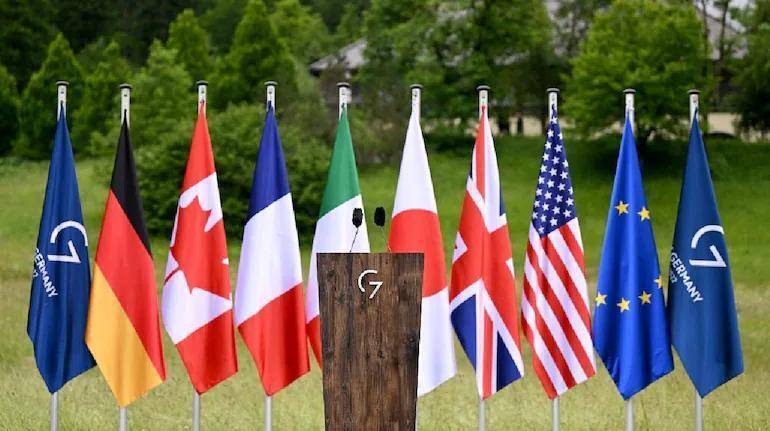
Seek Immediate De-escalation: G7 Nations Amid Indo-Pak Tensions
Tensions between India and Pakistan have been simmering for years, with periodic escalations threatening to plunge the region into chaos. The latest surge in tensions began with a terrorist attack in Pahalgam, India on April 22, which resulted in multiple casualties. In response, the foreign ministers of the G7 countries, comprising Canada, France, Germany, Italy, Japan, the United Kingdom, and the United States, along with the High Representative of the European Union, issued a joint statement condemning the attack and urging both nations to engage in dialogue to find a peaceful solution.
The statement, released on May 22, 2025, emphasized the need for immediate de-escalation and encouraged both India and Pakistan to engage in direct dialogue to resolve their differences peacefully. The G7 nations, who have a long history of promoting peace and stability globally, have consistently maintained that dialogue is the best approach to resolving conflicts between nations.
Background of Indo-Pak Tensions
The hostility between India and Pakistan is rooted in their colonial past, with both nations gaining independence from British rule in 1947. The two nations have been locked in a bitter dispute over the status of Kashmir, a region that is claimed by both countries. The dispute has resulted in three wars between India and Pakistan, with multiple skirmishes and atrocities committed by both sides.
In recent years, tensions have escalated due to a series of terrorist attacks in India, which have been blamed on Pakistan-based groups. In response, India has launched military operations across the Line of Control (LoC), which has resulted in significant losses on both sides.
G7 Statement and Its Significance
The G7 statement, which was released on May 22, 2025, is significant because it represents a unified stance by the world’s leading democracies on the need for peace and stability in the region. The statement acknowledges the need for both India and Pakistan to engage in direct dialogue to resolve their differences peacefully.
The statement reads, “We, the foreign ministers of the G7 countries, condemn in the strongest possible terms the egregious terrorist attack in Pahalgam on April 22. We call for immediate de-escalation and encourage both countries to engage in direct dialogue towards a peaceful outcome.”
The statement is significant because it represents a departure from the typical diplomatic language used by Western nations in response to conflicts in the region. In the past, Western nations have often been criticized for adopting a more nuanced approach to conflicts in the region, which has been seen as tantamount to appeasement.
Why Immediate De-escalation is Crucial
Immediate de-escalation is crucial in the current situation because the region is on the brink of a full-blown conflict. The recent terrorist attack in Pahalgam has already resulted in significant losses, and the situation is rapidly deteriorating.
If left unchecked, the escalation could result in a full-blown war between India and Pakistan, which would have devastating consequences for the region. The war would not only result in significant human casualties but also disrupt the global economy and create a humanitarian crisis.
Furthermore, a full-blown war between India and Pakistan would also have significant implications for regional security. The conflict would give rise to a new wave of terrorism, which would threaten the stability of the region and beyond.
Conclusion
In conclusion, the G7 statement is a significant development in the Indo-Pak tensions, as it represents a unified stance by the world’s leading democracies on the need for peace and stability in the region. The statement calls for immediate de-escalation and encourages both India and Pakistan to engage in direct dialogue to resolve their differences peacefully.
As the situation continues to deteriorate, it is crucial that the international community continues to apply pressure on both sides to engage in dialogue. The world cannot afford another conflict in the region, and it is up to the leaders of India and Pakistan to take bold steps to resolve their differences peacefully.
Source:






